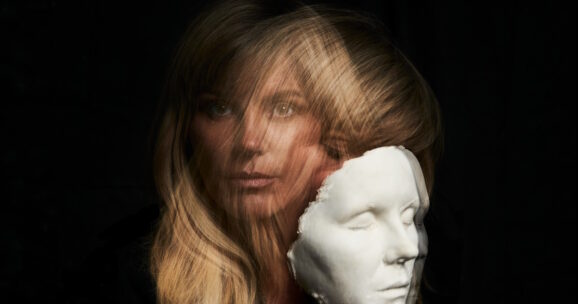On the fiftieth anniversary of Eric Clapton’s first solo effort (8/16/70), the Deluxe Edition of the eponymous album provides a comprehensive perspective on a pivotal piece of work in the man’s oeuvre. This package includes not only the original album, but a long-unavailable mix by Delaney Bramlett, as well as ancillary recordings of alternate takes, demos and jams (plus the electrifying “Comin’ Home”) on a double-CD set that offers unusually discerning hindsight into the different direction(s) the archetypal guitar hero might’ve gone working under his own name.
Produced by the aforementioned Southern guitarist and songwriter who, with spouse Bonnie and their Friends, had developed such an abiding relationship with Slowhand in the latter’s Blind Faith days, the sequence of tracks overseen by venerable Tom Dowd–who also worked with the Allman Brothers and Derek & The Dominos around this time–was the one to see the light of day, due in part to a series of missteps and miscommunications between him, Bramlett and Clapton himself. In marked contrast to the sleek polish Dowd applied, the ten performances Bramlett oversaw, then sequenced in a different order (minus “Told You For The Last Time”) radiate a bluesy authenticity that’s a natural artistic progression for Eric Clapton.
For that very reason, the record as it was originally issued gives the lie to the stance of blues purist EC adopted during his days with John Mayall and effectively set the tone for a solo career that, notwithstanding its commercial successes, was largely dominated by a similarly homogeneous sound (1992’s Unplugged a marked exception). The economy and ingenuity of Delaney’s arrangements instead conjure up a much more spontaneous, intimate feel. There’s ample room for Clapton to solo, for the instrumental opener “Slunky,” as well the beautifully atmospheric “Let It Rain,” (with guest guitarist Stephen Stills), and as he also began to hone his vocals skills (almost as if to mimic his roots-oriented mentor), there’s more of a sense of Clapton still remaining part of a band, rather than simply being backed by a faceless combo.
Of course, apart from the lush “Easy Now,” all acoustic guitars and Beatlesque harmony singing, there’s no denying much of it does sound simply like Eric backed by D & B and company, (with whom he also co-wrote most of the material). And, of course, that is actually the case as virtually that entire unit appeared on the record; the sax of Bobby Keys and trumpet of Jim Horn (who went on to play for the Rolling Stones circa Exile On Main Street) drive Clapton’ s initial J.J. Cale cover, “After Midnight,” while the unmistakable presence of Leon Russell’s piano adds drama to “Blues Power.”
Yet the contributions of the D&B musicians (including Bobby Whitlock, Carl Radle and Jim Gordon who would join the guitar hero on his next project, Layla and Other Assorted Love Songs), only reveals a fundamental drawback in the solo career of a man once likened to God: he was then and is now, by and large, without a style of his own to speak of. Eric Clapton is/was the first overt example of his natural tendency to define himself musically by those surrounding him which might well have been to his distinct advantage if he hadn’t been dogged by his status as a bonafide musical celebrity.
Clapton might well have flourished playing a supporting role in the company of other versatile musicians–the original concept for his collaboration the year before with Steve Winwood–assuming a comparably low-profile that would allow him to write and sing the occasional song, but otherwise concentrate on his greatest strength, as a guitarist. Admittedly, Eric wanted to eschew that larger-than-life instrumental stance as he began the Seventies, but such a hypothetical approach plays to his natural skills, however, contrary it might be to his high-profile name as it’s emblazoned on this LP cover.








One Response
Omg knock off the obnoxious adjectives. Who cares about your pretty vocabulary. It’s Blues rock dude, get to the point , we ain’t talking about Mozart here. These were drug endured 20 year olds with bad managers who couldn’t keep their own musicians from self destructive behaviors. Just like Robbie R without other musicians to teach you and help you grow, how else do you write music. Look at the crapola Prince put out, what Purple Rain?? Really? Lol. I’m sick of people trouncing on EC. He’s not Mark Knopfler for God sake and nobody cares that he’s not.